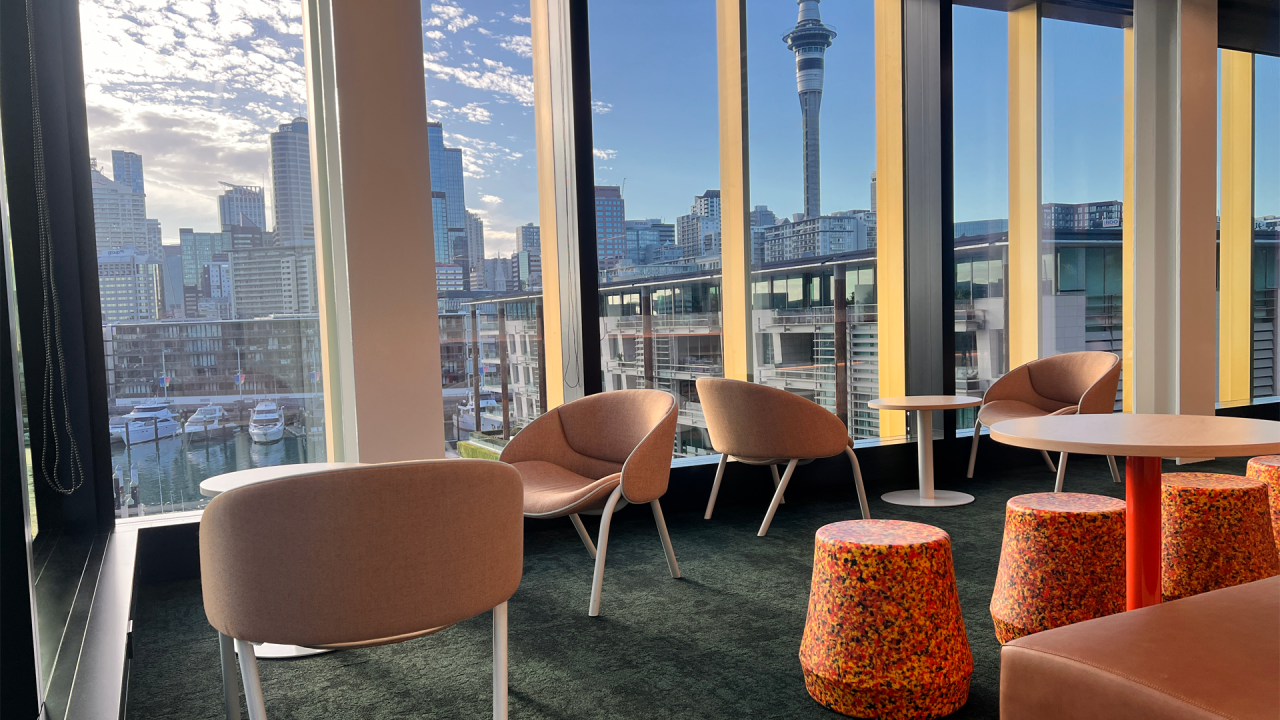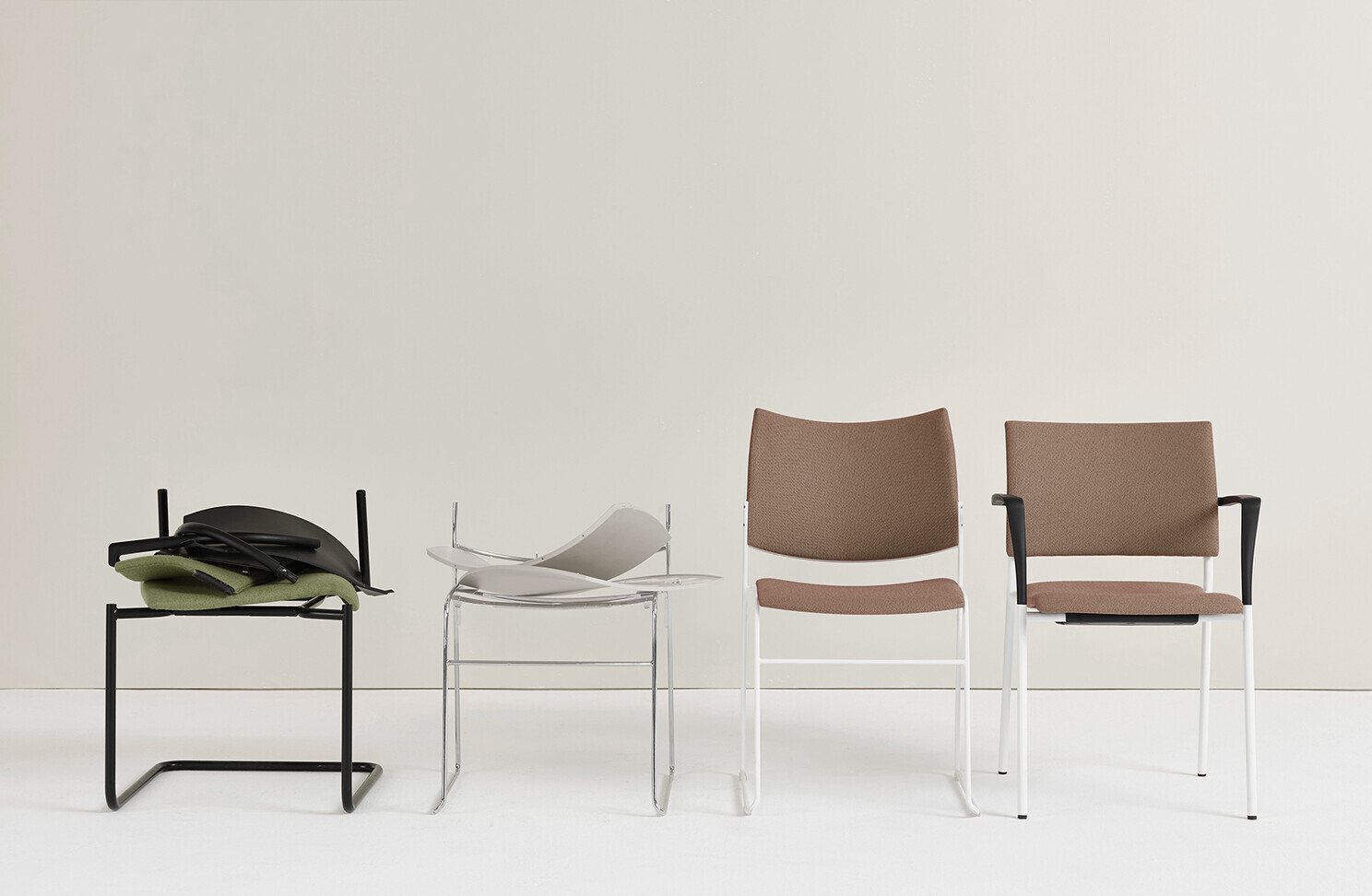

Last month, we explored The Future of Workplace Design: Trends for 2025 and Beyond, examining how evolving work spaces prioritise flexibility, well-being, and technology integration. As the work place continue to adapt to new challenges and expectations, one factor stands out as a critical consideration for the future: sustainability.
Sustainability is no longer an optional feature—it is a business imperative. Organisations worldwide are recognising that their choices in office furniture impact not only the environment but also employee well-being, brand reputation, and long-term financial performance. With growing awareness of climate change, resource depletion, and waste management, businesses are seeking solutions that align with their ESG (Environmental, Social, and Governance) commitments while fostering healthier and more productive work environments.
Yet, sustainability is often misunderstood. In New Zealand, where the natural environment plays a significant role in cultural identity,
sustainability is frequently associated with individual action—such as recycling or reducing plastic use—rather than systemic change.
However, true sustainability in business requires a shift in mindset: from viewing eco-friendly choices as a cost to seeing them as an
investment in resilience, efficiency, and long-term success.
At Unison Spaces, sustainability is woven into the fabric of our approach. We believe that creating a responsible work space goes beyond aesthetics and functionality—it means making choices that support a healthier planet and a circular economy. Here’s how we uphold our commitment to sustainable practices:

At Unison, sustainability isn’t just a responsibility—it’s a core value that drives our business decisions and long-term vision. As a leader in furniture solutions, we recognise our role in shaping a more sustainable future for the industry. By prioritising eco-conscious practices, we:
A common misconception in the market is that sustainability comes with a premium price tag. While there is an initial investment, sustainable choices often result in long-term cost savings through durability, energy efficiency, and reduced waste. The true cost of unsustainable furniture—frequent replacements, landfill contributions, and negative brand perception—far outweighs the upfront expense of responsible sourcing.
Sustainability is not just about the products we offer—it’s about the impact we create. By integrating sustainability into our core business strategy, we ensure that our clients receive not only innovative and inspiring workspace solutions but also a commitment to a more responsible future.

The industry is witnessing groundbreaking sustainability efforts that set new standards for responsible furniture design. Key initiatives leading this change include:
These companies are proving that sustainability and high-quality design can go hand in hand.
Sustainability in the commercial furniture industry presents both challenges and opportunities worldwide. As businesses navigate the complexities of balancing cost with environmental responsibility, it is essential to take a holistic approach to sustainability.
At Unison, we prioritise working with global manufacturers that are transparent about their sustainability efforts. While local production can reduce transport emissions, true sustainability requires a full assessment of the entire supply chain—from material sourcing and production to distribution and disposal. A product manufactured with sustainable processes and responsibly sourced materials may have a lower overall carbon footprint than one that is locally produced but lacks transparency and certification.
For example, companies like Herman Miller have made significant strides in reducing emissions by introducing recycled materials and innovative design changes. The Mirra 2 chair was recently redesigned with 100% recycled nylon, cutting its carbon footprint to 64.2 kg CO2. Similarly, MillerKnoll has reduced the carbon footprint of its top products by 25% since 2022, setting new industry benchmarks for sustainability.
Working with globally recognised sustainable suppliers allows us to ensure full material transparency, reducing emissions at the source rather than relying on carbon offsets. At Unison, we focus on suppliers who:
Commit to long-term sustainability goals, such as MillerKnoll’s ambition to achieve net-zero carbon by 2050

Sustainability is not just about what products are made of—it’s also about how long they last. We prioritise timeless, durable designs that can be repurposed or recycled rather than discarded. Suppliers like Herman Miller, Muuto, and Wendelbo are committed to designing products that stand the test of time, minimising landfill waste and maximising reuse.
While global brands are making significant progress, New Zealand manufacturers face challenges in achieving the same level of sustainability due to high costs and limited access to sustainable production methods. At Unison, we are on a journey to obtain Toitū certification, further strengthening our commitment to verified sustainability standards.
We aim to work closely with both global and local suppliers to raise the bar, ensuring that all our products meet rigorous environmental standards. This is not just about compliance—it’s about making meaningful change that benefits businesses, people, and the planet.
As climate change accelerates, businesses must take an active role in reducing their environmental impact. Choosing sustainable furniture is one way to contribute to a better future while also benefiting from high-quality, durable products.
At Unison, we are proud to be part of this movement—offering innovative, sustainable solutions that help companies align their work space with their values. The challenge ahead is not just about designing for sustainability but rethinking how we assess and implement it at every level.
The time for change is now. Let’s create a more sustainable future, one piece of furniture at a time. How is your organisation integrating
sustainability into its work place strategy? Let’s continue the conversation.